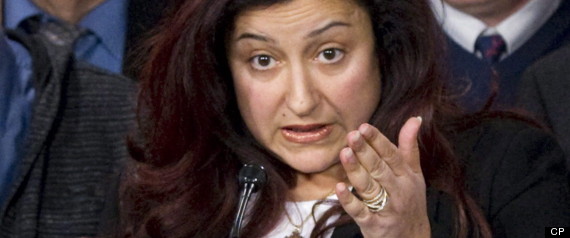


On Saturday, September 14th 2013, a protest was held in Montreal to express their opposition to the proposed Charter of Quebec Values. The protest was pan-religious and featured people of different religious backgrounds. Though the Quebec Charter will be officially debated in the Quebec National Assembly, many Quebecois and Canadians expressed already expressed their views to such a charter weeks in advance.
Though many Canadians have expressed their voices in opposing such a Charter, the political landscape is much different in Quebec. Unlike the rest of the nation, most Quebecois support such a Charter. Strangely enough, the division doesn’t just cut between Quebec & Canada. The mayors of Montreal and the boroughs have all unanimously expressed their opposition to the Charter. Montreal being the most diverse within the province, would be the most affected by the Charter as most of the minorities living in Quebec reside in the Montreal.

Many politicians have been scrambling and Canadian politics has taken a halt due to the issue the Charter is creating. Minister of Multiculturalism, Jason Kenney, Liberal Leader, Justin Trudeau, and New Democratic Leader, Thomas Mulcair, have voiced their opinions denouncing Ms. Marois’s decision to ban religious garments in the public sector. The ban affects all government employees such as doctors, teachers, or day care workers.

Though there are supporters are prevalent, especially in the province of Quebec. The Public Sector Union, The Syndicat de la fonction publique et parapublique du Québec (SFPQ), applauds the government’s decision to ban religious clothing in the public sector. The SFPQ President, Lucie Martineau, is quoted to have said, “We’re obliged to keep our political opinions to ourselves, we want that extended to our religious opinions.” The federal sister of the governing Parti Quebecois, the Bloc Quebecois, stated their support to their provincial counterpart. The Bloc Quebecois, only having 5 members in the House of Commons, just lost another seat due to conflict of ideas. Maria Mourani, was the first Member of Parliament of Lebanese descent, got ousted from the Bloc because she thought that the Charter of their sister party would impose tensions between Quebec’s minorities and the mainstream society. After her expulsion, she stated to begin questioning her role in the Quebec sovereigntist movement. She is quoted to have said to press, “Whether they like it or not, they are discriminating against minorities. It has never been easy to convince people from ethno-cultural groups that the independence movement is inclusive. The signal here is not very encouraging,”

Regardless of the political conflict the Charter is causing on a Federal scale, it seems that down to the Provincial and Municipal scale, the voices are much more direct. The Mayor of Calgary, Naheed Nenshi, Canada’s first Muslim mayor said publically his opinion on the proposed act. He is quoted to reporters having said, “What I’m saying today is look, whether or not you’re a person who wears a turban or a hijab, if you’re uncomfortable living in a society that says people who wear turbans or hijabs should be excluded from certain jobs, come here. We’re happy to have you.” Even British Columbia Premier, Christy Clark, said during a press conference that, ” we’ll find every opportunity that we can to make sure we welcome diversity here.”
http://youtu.be/ws61KtnM-Qg
As the nation shows their furious or admiration to Ms Marois’s Charter of Quebec Values, some express the legality of such a Charter. The Charter of Rights and Freedoms of Canada states the religious, expression, and speech freedoms people have right to enjoy. Some critics of the Charter say that Ms Pauline Marois is merely creating a political distraction from the real problems happening in Quebec such as job creation, infrastructure improvements, and scandals within the construction industry and politicians. Others also would go so far to even say it’s part of a grander plan of alienating Quebec from the rest of a nation under a common cause. Polls suggest the sovereignty movement is declining and this could be a political stunt to create tensions between the province and the federal government.
The Charter of Quebec is undoubtedly a controversial issue in Canadian politics. Some see it as a rift with Canadian multiculturalism and what is acceptable in such a society. The public debate over the Charter continues to spread and sooner, one side will take action to the future of this proposed legislative schism.
National Post Globe and Mail CBC News CTV News Toronto Star Canada.com CBC News CBC News Huffington Post
